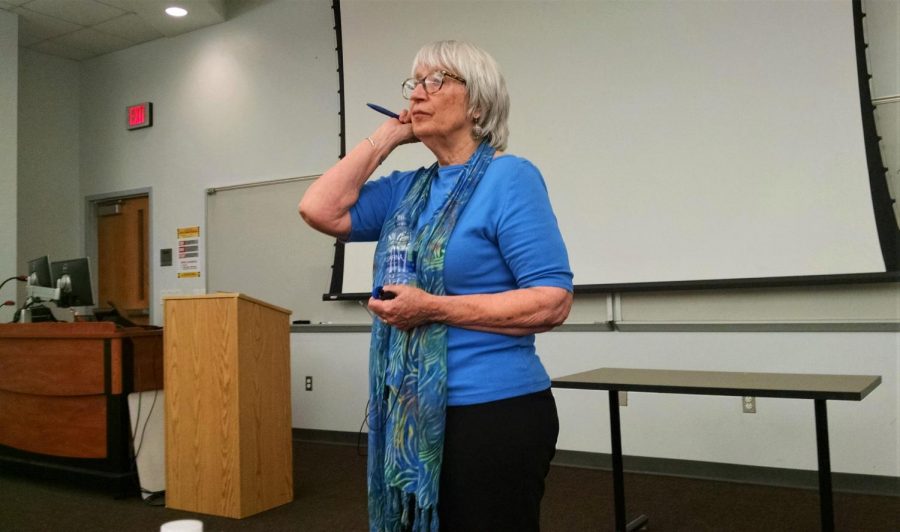Karen Branan gets honest about her family history
Karen Branan spoke at UNC Wilmington on Monday about her book, “The Family Tree: A Lynching in Georgia, a Legacy of Secrets, and My Search for the Truth,” and her journey to uncover her own family history.
Standing before an expectant crowd on Monday in UNC Wilmington’s Computer Information Systems building, author and journalist Karen Branan said she had “not relished uncovering the crimes of my forefathers.”
Branan spoke about her book “The Family Tree: A Lynching in Georgia, a Legacy of Secrets, and My Search for the Truth” in an event co-sponsored by the UNCW Department of Sociology and Criminology, the Women’s Studies Resource Center and the Department of Communication Studies.
The book gave background to her talk titled “The Family Tree: Getting Honest About White Southern History,” which provided a critical and honest look at the history of race relations in the southern United States through one woman’s family.
Branan’s journey began with the birth of her first grandchild. When her son, a white man, had a child with his girlfriend, an African-American woman, Branan found herself worrying about how to announce her mixed-race grandchild’s birth to her relatives still living in Georgia.
She found herself experiencing such immense stress over what she knew should have been a simple decision that she realized there was something deeper going on – she came to a tipping point when she awoke one night to the ghost of an African-American woman at the foot of her bed, saying to her, “Go home, find out what happened.”
Through her research, Branan discovered an event in which her great-grandfather, the former sheriff of Harris County, Georgia, had been involved in 1912. Three black men and one black woman had been accused of murdering the sheriff’s nephew.
Following a quick trial, the four were killed in a public lynching that was sanctioned by the sheriff himself.
The four people lynched on that day, it turned out, were actually cousins of the sheriff himself, stretching back to when a white slave owner in Branan’s family fathered children with his black female slave. This kind of relation was not an outlier in the community, however, as many prominent families also had their “black family” side who were never truly recognized as family.
While researching and promoting her book, Branan met members of her family she never knew existed and learned of stories never told before. She said the process of discovery was hard but healing.
“I can be in the world in an honest way now,” especially now that she is reaching out to lost family members and coming to terms with their family history, she said.
“What really struck me was how she talked about discovering she had so many black cousins,” said Morgan Starling, a UNCW sophomore who attended the lecture. “It made me think about the fact that we probably have so many different races and backgrounds in our families that we don’t even know about because of racism.”
After experiencing the twists and turns of her search, Branan was able to summarize why parts of her story seem so shocking.
“We still do not have a completely true American history – a history that combines the white and black histories of America.”








